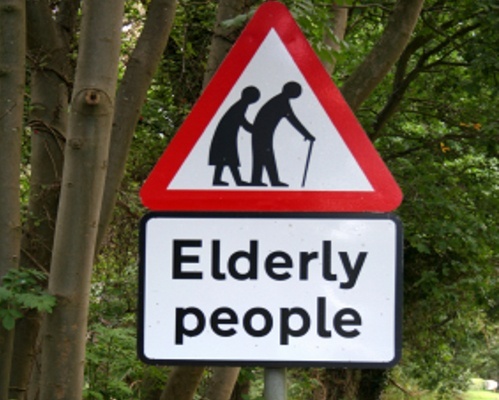
Till recently senior citizens of India did not have a way to liquidate their most significant and largest asset the house but now people like the Kumars can take a lump amount as a loan by pledging their home. They can also opt for this amount on a periodic basis…monthly, quarterly etc. They will never have to repay this money in their lifetime and they can continue to live in the house.
Imagine this scenario, an old couple the Kumars living all by themselves in Trichy, India with all their five children abroad, two of them settled there, another two who have bought houses in Pune, wishing to settle down there and the fifth wanting to live in Chennai! The couple had invested their life’s savings to build a palatial seven bedroom house, thinking naively at that point in time, that all their children were going to live together under one roof.
The Kumars get invited often by their children abroad and they spend nearly the whole year spending time with their five children at different times of the year. They probably stay in their house close to only four months in a year. They often crib about maintaining their house and the expenses that are incurred because of that.
Such scenarios are very common in Urban India, where people always move away from their home town to find jobs and further their careers. The house becomes a place to visit, rather than stay for them. In such instances, the concept of reverse mortgage would fit the bill very well.
Till recently senior citizens of India did not have a way to liquidate their most significant and largest asset the house but now people like the Kumars can take a lump amount as a loan by pledging their home. They can also opt for this amount on a periodic basis…monthly, quarterly etc. They will never have to repay this money in their lifetime and they can continue to live in the house. At their end of their lifespan, the property will be sold and the loan amount and interest recovered. If the value of the property diminishes over time, no one is liable to repay the loss, the bank or housing finance company incurs it. On the other hand, if the value of the house appreciates and returns exceed interest and principal repaid, then the amount is passed on to the heirs.
In the Kumar’s case it makes perfect sense for them to opt for a reverse mortgage, as it is clear none of the children, wish to reside in the house. Also to maintain the costs and be able to manage the expenses of a retired life, the money that comes from reverse mortgage will be a welcome relief for them. Other than speculative purposes, the money can be utilised to meet their everyday needs, including renovation of the property, medical expenses etc.
A very popular concept abroad, reverse mortgage was recently introduced In India. National Housing Bank (NHB), which is a subsidiary of Reserve Bank of India (RBI) has released the tentative norms of this loan scheme.
According to these guidelines, a senior citizen who is above 60 years of age is eligible to apply for a reverse mortgage loan and avail 60% of the value of the residential property he resides in and retain the right to continue to reside there. The maximum tenure for this loan scheme is 15 years.
The bank is allowed to re-evaluate the property once every five years and the apply the changes to the loan amount. At the end of 15 years, the borrower can continue to live in that house but will not be eligible for further disbursement of the periodic payments from the bank, if that has been the case.
As the concept is new in India and a lot many factors like the loan amount, interest etc. is left to the discretion of the Bank, it is best to read the fine print carefully and ensure that the both parties have understood the terms and conditions thoroughly before proceeding with the arrangement.
one fails to understand the logic–the banks charge interest around 8 -8.75%on loan amount for the purchase of new house ,whereas banks charge 10.75% from senior citizens under the reverse mortgage scheme. Reserve Bank of India has left it to the individual banks to fix the interest at their own whims. RBI should direct the banks to levy the same interest rates on the property mortgaged under the said sheme as is levied on the newly acquired property.
so this is all about the reverse mortgage scheme.so far so good.but what if only one of the spouses is willing to create a reverse mortgage due to sentimental values.This is not an imaginary concept.In fact in India most of the ladies of the house have a great attachment for their properties and a mere thought of creating a mortgage in the name of third person viz a bank is not liked by them.However there is no way out for the elderly gentleman who has no income and is not getting any pension like myself.There should be such clause in the agreement which should not make it necessary for the spouse to sign as coborrower.